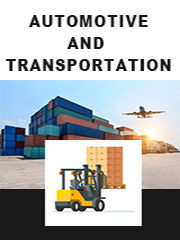Report overview
Antifreeze is a type of coolant with antifreeze function. It is generally used for cars, trucks, bus, tractors, train locomotives and engineering machinery etc. Antifreeze has the function of anti-freezing, anti-boiling, anti-corrosion, anti-incrustation scale etc. For the relatively large market share of automotive antifreeze, this report mainly talks about auto antifreeze, the 30%~70% diluent antifreeze.
This report aims to provide a comprehensive presentation of the global market for Light Vehicle Antifreeze, with both quantitative and qualitative analysis, to help readers develop business/growth strategies, assess the market competitive situation, analyze their position in the current marketplace, and make informed business decisions regarding Light Vehicle Antifreeze. This report contains market size and forecasts of Light Vehicle Antifreeze in global, including the following market information:
Global Light Vehicle Antifreeze Market Revenue, 2018-2023, 2024-2029, ($ millions)
Global Light Vehicle Antifreeze Market Sales, 2018-2023, 2024-2029, (K MT)
Global top five Light Vehicle Antifreeze companies in 2022 (%)
The global Light Vehicle Antifreeze market was valued at US$ 4744.5 million in 2022 and is projected to reach US$ 5525.6 million by 2029, at a CAGR of 2.2% during the forecast period. The influence of COVID-19 and the Russia-Ukraine War were considered while estimating market sizes.
Europe is the largest Antifreeze market with about 42% market share. USA is follower, accounting for about 25% market share.
The key players are Prestone, Shell, Exxon Mobil, Castrol, Total, CCI, BASF, Valvoline, Old World Industries, KMCO, Chevron, SONAX, Getz Nordic, Kost USA, Recochem, Amsoil, MITAN, Gulf Oil International, Paras Lubricants, Solar Applied Materials, Pentosin, Millers Oils, Silverhook, Evans, ABRO, Sinopec, CNPC, Lanzhou BlueStar, Zhongkun Petrochemical, China-TEEC etc. Top 3 companies occupied about 37% market share.
We surveyed the Light Vehicle Antifreeze manufacturers, suppliers, distributors and industry experts on this industry, involving the sales, revenue, demand, price change, product type, recent development and plan, industry trends, drivers, challenges, obstacles, and potential risks.
Total Market by Segment:
Global Light Vehicle Antifreeze Market, by Type, 2018-2023, 2024-2029 ($ Millions) & (K MT)
Global Light Vehicle Antifreeze Market Segment Percentages, by Type, 2022 (%)
Ethylene Glycol Coolant
Propylene Glycol Coolant
Other
Global Light Vehicle Antifreeze Market, by Application, 2018-2023, 2024-2029 ($ Millions) & (K MT)
Global Light Vehicle Antifreeze Market Segment Percentages, by Application, 2022 (%)
Light Passenger Vehicle
Light Commercial Vehicle
Global Light Vehicle Antifreeze Market, By Region and Country, 2018-2023, 2024-2029 ($ Millions) & (K MT)
Global Light Vehicle Antifreeze Market Segment Percentages, By Region and Country, 2022 (%)
North America
US
Canada
Mexico
Europe
Germany
France
U.K.
Italy
Russia
Nordic Countries
Benelux
Rest of Europe
Asia
China
Japan
South Korea
Southeast Asia
India
Rest of Asia
South America
Brazil
Argentina
Rest of South America
Middle East & Africa
Turkey
Israel
Saudi Arabia
UAE
Rest of Middle East & Africa
Competitor Analysis
The report also provides analysis of leading market participants including:
Key companies Light Vehicle Antifreeze revenues in global market, 2018-2023 (Estimated), ($ millions)
Key companies Light Vehicle Antifreeze revenues share in global market, 2022 (%)
Key companies Light Vehicle Antifreeze sales in global market, 2018-2023 (Estimated), (K MT)
Key companies Light Vehicle Antifreeze sales share in global market, 2022 (%)
Further, the report presents profiles of competitors in the market, key players include:
Prestone
Shell
Exxon Mobil
Castrol
Total
CCI
BASF
Valvoline
Old World Industries
KMCO
Chevron
SONAX
Getz Nordic
Kost USA
Recochem
Amsoil
MITAN
Gulf Oil International
Paras Lubricants
Solar Applied Materials
Pentosin
Millers Oils
Silverhook
Evans
ABRO
Sinopec
CNPC
Lanzhou BlueStar
Zhongkun Petrochemical
China-TEEC
Outline of Major Chapters:
Chapter 1: Introduces the definition of Light Vehicle Antifreeze, market overview.
Chapter 2: Global Light Vehicle Antifreeze market size in revenue and volume.
Chapter 3: Detailed analysis of Light Vehicle Antifreeze manufacturers competitive landscape, price, sales and revenue market share, latest development plan, merger, and acquisition information, etc.
Chapter 4: Provides the analysis of various market segments by type, covering the market size and development potential of each market segment, to help readers find the blue ocean market in different market segments.
Chapter 5: Provides the analysis of various market segments by application, covering the market size and development potential of each market segment, to help readers find the blue ocean market in different downstream markets.
Chapter 6: Sales of Light Vehicle Antifreeze in regional level and country level. It provides a quantitative analysis of the market size and development potential of each region and its main countries and introduces the market development, future development prospects, market space of each country in the world.
Chapter 7: Provides profiles of key players, introducing the basic situation of the main companies in the market in detail, including product sales, revenue, price, gross margin, product introduction, recent development, etc.
Chapter 8: Global Light Vehicle Antifreeze capacity by region & country.
Chapter 9: Introduces the market dynamics, latest developments of the market, the driving factors and restrictive factors of the market, the challenges and risks faced by manufacturers in the industry, and the analysis of relevant policies in the industry.
Chapter 10: Analysis of industrial chain, including the upstream and downstream of the industry.
Chapter 11: The main points and conclusions of the report.
